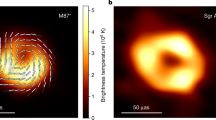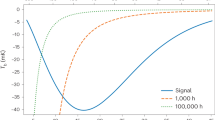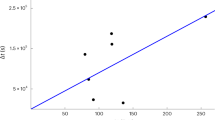Abstract
IN one of his earlier papers, Dirac1 concluded that the gravity coefficient, far from being constant, varies inversely with a “universe time parameter”. This result was not accepted by the physicists and it was common opinion that a field theory featuring a non-constant gravity coefficient falls outside the limits of the general theory of relativity. However, Dirac's idea was revived recently. Starting from reasonable assumptions, C. Gilbert2 showed, in 1956, that Dirac's hypothesis is a corollary of the general theory of relativity. He further computed the age of the universe from the present value of the gravity constant and found it to be 4.1 × 109 years, in remarkable coincidence with the age of the Earth of 4.2 × 109 years, as determined by radioactive methods.
This is a preview of subscription content, access via your institution
Access options
Subscribe to this journal
Receive 51 print issues and online access
$199.00 per year
only $3.90 per issue
Buy this article
- Purchase on Springer Link
- Instant access to full article PDF
Prices may be subject to local taxes which are calculated during checkout
Similar content being viewed by others
References
Dirac, P. A. M., Proc. Roy. Soc., A, 165, 199 (1938).
Gilbert, C., Mon. Not. Roy. Astro. Soc., 116, 684 (1956).
Author information
Authors and Affiliations
Rights and permissions
About this article
Cite this article
EGYED, L. Dirac's Cosmology and the Origin of the Solar System. Nature 186, 621–622 (1960). https://doi.org/10.1038/186621a0
Issue Date:
DOI: https://doi.org/10.1038/186621a0
This article is cited by
-
The Expanding Earth?
Nature (1963)
-
Dirac's Cosmology
Nature (1961)
Comments
By submitting a comment you agree to abide by our Terms and Community Guidelines. If you find something abusive or that does not comply with our terms or guidelines please flag it as inappropriate.



